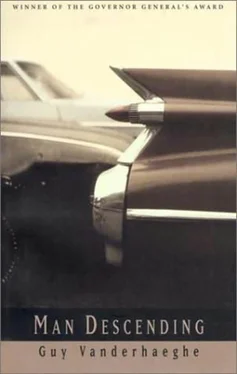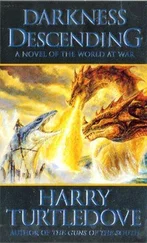“Jesus, Anne,” said the doctoral candidate in eighteenth-century English history, “show a little perspective. That was forty years ago. They don’t let Charles off the hook, do they? Lots of speculation about this Prince of Wales.”
“This Jubilee business is getting under my skin,” said the wife of the American. “It’s medieval.”
“Interesting word, medieval,” said Mark. “That dismisses it all neatly. The Queen of England is worth millions upon millions of tourist dollars a year. The republicans come from all over the world to yearn.”
“You wouldn’t think it was so goddamn funny,” she said, “if you came with me on my rounds.” She was a volunteer social worker. “West Indian families I visit have spent milk money to buy commemorative teacups and saucers. Ghastly bloody things with the Queen’s face painted on them. Those black kids meanwhile don’t know anything about their heritage, do they? I mean what the hell does the Queen of England mean to them? The Great White Mother?”
A fellow with dirty blond hair said, laughing: “The House of Windsor is the opiate of the working class.”
“Even back home,” said the young man standing beside him. “My mother will actually cry if you say anything against the Queen. I don’t know what the hell it is. A different generation, I guess.”
“Ah, bullshit,” said a tall, thin man who had been introduced to Joe as Daniel. Joe thought he had been told Daniel came from Trois Rivières but decided he must have got it wrong. His English was unaccented and perfectly idiomatic. “All Anglo-Saxons are monarchists. You just have to scratch deep enough.” He laughed to show it was all a joke. That he was only being charmingly provocative.
He’s French all right, thought Joe. He’s got one of those goddamn aristocratic noses that looks like it could slice butter. The kind that makes mine look like a peasant’s potato.
“Well, they’re trying to do their best to turn the niggers in Deptford into honest liegemen,” said the American sourly.
“What the hell do you want?” said Joe, suddenly angry. “Those niggers in Deptford are English, aren’t they? They were born in this country, weren’t they? It’s their damn queen, isn’t it?”
The American girl looked at him steadily. She took a sip out of her glass and casually tucked her hair behind her ears. “They’re black,” she said calmly. “There is a difference. I can see the same thing happening here that happened back home. They’ll grow up without a base, without their own values and traditions.”
“They’re Englishmen,” said Joe stubbornly. He knew that in a way that wasn’t quite right, but he knew it wasn’t quite wrong either. And he felt better for saying it.
The room was quiet. No one agreed with him but they weren’t about to contradict him. He realized that they thought arguing with him would be a waste of time. That he was too out of touch with things. Well, he supposed he was.
“I understand that a little better than some people,” said the American girl. “My family came to Maine from Quebec ninety years ago. We were wiped out. I can’t speak French. I don’t know where I’m from. It’s like we never were.”
Jesus Christ, thought Joe. What he said was, “That guy who wrote that book Roots ought to be held personally responsible for filling people’s heads with this bullshit.”
“It may be bullshit to you,” said the girl. “But it hurts, you know?” She pressed the heel of her hand under her ribcage. Joe realized that she was very drunk, even though her speech didn’t show a trace of slurring. “Hey, Daniel,” she said. “You’ll teach me to speak French, won’t you?”
He smiled and nodded. “Sure.”
“Daniel,” said the girl earnestly, “knows who the hell he is. Nobody else here does. But Daniel does. He’s a Québécois.”
“Daniel, our péquiste ,” said Mark affectionately. “But I shouldn’t say that around Dad or he’ll have a bone to pick with you.”
“I don’t have a bone to pick with anyone,” said Joe.
“Vive Québec libre,” said the bearded boy from Chatham drunkenly.
Daniel smiled. Joe saw that he was embarrassed for the rest of them. But they couldn’t see it. They continued.
“To what do you owe your success?” said the Chathamite. “Why are you, as Rose suggests, so together? So Québécois?”
It isn’t funny, Joe thought. They think it is, but it isn’t. He is serious. It seemed to Joe that Daniel was speaking directly to him.
“What is the secret of our success?” said Daniel. “We’re like the Irish, or the Jews, or the South of the Confederacy. We don’t forget. Anything. The good or the bad.” He laughed. “You can see it in our faces.” He pointed to Joe. “We all have mouths like that.”
“And that’s the secret?”
“Yeah,” said Daniel, suddenly becoming irritable with the game, “that’s it. Je me souviens . It’s the motto of Québec. I remember. Je me souviens.”
“Well, that seems simple enough,” said the bearded boy. “That’s easy.”
No it isn’t, thought Joe. He felt a little panicky. It isn’t easy at all. He finished his drink, picked up his coat and spoke to Mark.
“I think I’ll be going now,” he said. He felt he had to get out of there.
Mark was alarmed. “Jesus, Dad,” he said, “is there something the matter? Are you feeling okay?”
“Fine,” said Joe. “I feel fine. I’m just tired. I’m too old for this party.” He smiled. “Everybody here is too quick for me. I’m out of step.”
“No you’re not,” said Mark, holding on to his coat sleeve. “Don’t go.”
“I’d better.”
He left Mark at the doorway. In the hall Joe pushed the timed light switch that would illuminate the stairwell for a minute so that he could get down to street level. As he moved downward through the thick smells of curry and cabbage, something caught his eye. On the wall of the stairwell, scribbled in felt pen, was written, “Punk Rule OK!”
What a long way I came for this, Joe thought.
He took a pen out of his breast pocket and, directly beneath the slogan, wrote in his neat, schoolmasterish script Blake’s line: “Albion’s coast is sick, silent; the American meadows faint!”
The light in the stairwell clicked off and he was left in darkness. The penalty for tardiness and vandalism. But at last, hidden in the dusty, narrow tomb of the hallway, hidden in utter night, he found himself whispering it. I remember. I remember. Now I do.
She was a long time dying. Two years. But neither of them had admitted the possibility. That was foolish. In the early days after she had been diagnosed they would load the car and drive down to the ferry to fish for goldeye. They would drive their rods into the soft sand strewn with flood refuse and sit huddled together watching the bright floats riding the oily dark water. That might have been the time to say something. But the sun polished the heavy water, sluggish with silt, and the breeze tugged at their pant-legs and they were full of expectation, certain of a strike, eager to mark a plunging float. The magpies dragged their tail feathers along the beach and the earliest geese rode far out in the river along the flank of a sandbar. Nothing could touch them, and they pressed their shoulders together hard as they leaned into a sharp breeze that came off the face of the water.
At the end, of course, it was different. He spent every night in the armchair in her hospital room. Instead of watching a bright float, he stared at the intravenous bottle slowly drain, and when it emptied he called the little blonde nurse who wore too much make-up.
By then Marie was out of her head, wingy as hell. The things she said, accused him of. Poisoning her food, stealing her slippers, lying to her, sleeping with her friends now that she was sick – even of sleeping with her sister. The doctor explained it by saying that the cancer had spread to her brain. That was true. But why did she think of him in that way? Had she drawn on some silent, subterranean stream of ill will he had never sensed for those crazy notions? How had she really seen him all those years they had spent together? Had she read in his smoothly shaved face some malignancy?
Читать дальше












